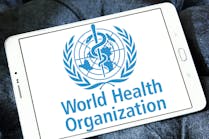Mount Sinai awarded $25 million to study the environment’s influence on people’s health throughout their lifetimes
Three world-renowned environmental health researchers from the Institute for Exposomic Research at Mount Sinai have been awarded grants worth a total of $25 million from the National Institutes of Health (NIH) for the newly formed Human Health Environmental Assessment Resource (HHEAR). This program is dedicated to measuring all the environmental factors faced in people’s lives – a new science called “exposomics,” which is expected to yield important insights about disease processes and potential treatments.
The NIH established the HHEAR Laboratory Network Hub research network to facilitate novel research into children’s and adults’ environmental health. The goal of the consortium is to provide scientific researchers access to state-of–the-art laboratory analyses and advanced statistical data analyses of all the measurable environmental exposures that people face, so researchers can better understand why children and adults develop diseases like autism, asthma, heart disease, or even cancer.
Additionally, HHEAR will make exposomic data publicly available and provide tools to allow the near-effortless pooling of the data across studies, so researchers around the world can better understand the effects of thousands of environmental exposures on health across people’s lifespans.
“This program is another giant step in the growth of our exposomics program. Mount Sinai is the only institution to be awarded multiple components of the large HHEAR research program with three large grants in exposomics, illustrating our leadership in the field,” said Robert Wright, MD, MPH, Ethel H. Wise Chair of Environmental Medicine and Public Health, and Co-Director of the Institute for Exposomic Research.
Dr. Wright noted, “We believe studying the exposome is crucial to understanding how the complex mix of nutritional, chemical, and social environments affects health, disease, and development and to translate those findings into new strategies for prevention and treatment.”
The NIH awarded Dr. Wright funding for a HHEAR Laboratory Network Hub that studies mixtures of hundreds of exposures to substances. The lab will measure these exposures across all life stages to help NIH-funded researchers improve medical treatments and prevent diseases. The substances to be studied include lead, mercury, and other metals; plastics; pesticides; flame retardants; endocrine-disrupting chemicals; and tobacco metabolites, using state-of the art methods that take samples from sources including teeth, hair, and blood.
The NIH awarded Manish Arora, PhD, MPH, the Edith J. Baerwald Professor and Vice Chair of Environmental Medicine and Public Health, and Director of the Lautenberg Laboratory for Environmental Sciences, funding for a HHEAR Laboratory Hub that studies unidentified chemical exposures. This grant will use a suite of “omic” technologies to measure exposure to environmental chemicals and their metabolites as well as the internal response to those exposures. His grant works in tandem with Dr. Wright’s grant by discovering previously unknown chemical exposures that are then targeted for health research.




